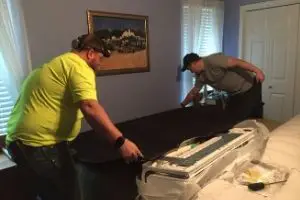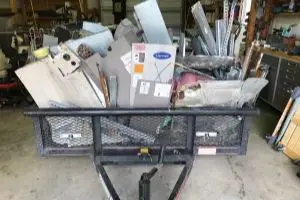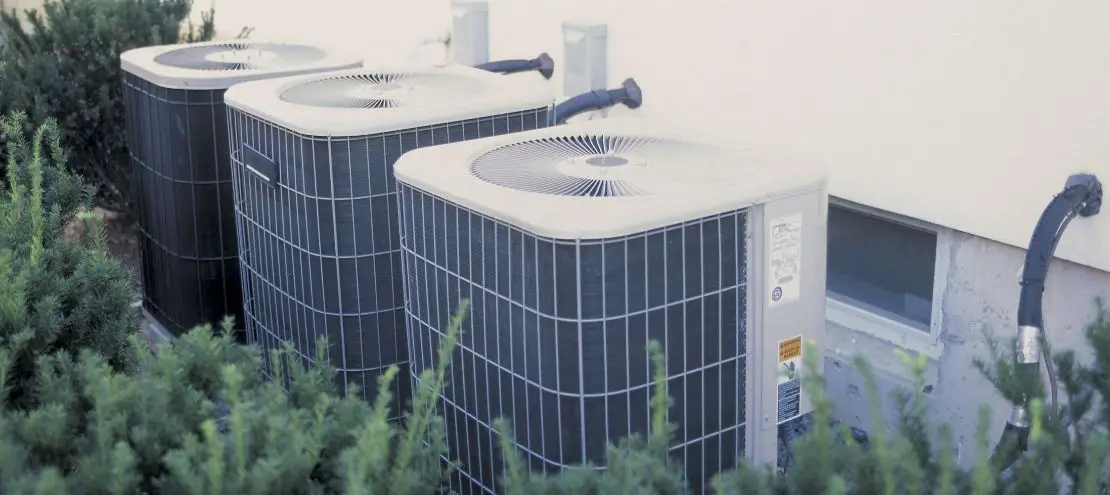5 Things to Know About HVAC Installation
Is HVAC installation on your to-do list? Is your central air and heating system aging and in need of replacement sooner rather than later?
The demand for HVAC companies and more efficient equipment is rising. As temperatures increase and consumers look for more ways to stay comfortable indoors, having an HVAC system you can rely on is more important than ever. But how do you become a savvy shopper, since most of us don’t purchase HVAC systems every day?
With this guide, you’ll learn our best tips every homeowner should know about HVAC installation. This ensures you know what to expect when working with a reputable HVAC company and what questions to ask. Read on to learn more about what you need to know about HVAC installation.
1. Pick the Perfect HVAC System
Before installing an HVAC system, you can narrow down the choices based on the climate where you live. For example, on the Texas Gulf Coast, our climate is hot and humid much of the year and it rarely freezes. This means that having a reliable air conditioner or heat pump will be one of the hardest working appliances in your home. As a result, your central air and heating system is critical to your home’s comfort. There are other factors you need to know before picking the right HVAC system for your home or office.
First, you must think about the unit’s size. Cooling capacity is measured in tons, and heating is measured in BTUs. The size determines how much cooling or heating your home can accommodate. See this helpful AC and heating calculator for a rule of thumb. It’s wise to make sure you get the right size, and an HVAC company can help you with this task. If you buy an air conditioner that is oversized for your home, it will get cold but it won’t remove enough humidity and it can create a mold problem over time.
Keep in mind that many HVAC manufacturers offer a variety of trim levels in different sizes and configurations. It’s smart to ask your HVAC technician for a quote and have them specify the exact model so you know exactly what you’re getting and you can research it online.
Energy efficiency is important to consider. Sometimes a more expensive variable speed HVAC system can be so efficient that it actually pays for itself over time. You can look for Energy Star ratings and look for a high SEER rating.
SEER stands for Seasonal Energy Efficiency Ratio. It’s a fancy term that specifies how much energy an AC unit will use over the course of a year. Most AC units have a 13-20 SEER rating. Mini split units can be even more efficient. Ask your HVAC technician if you have questions about energy efficiency, and they can help you balance efficiency and cost.
Before you decide on the cheapest HVAC unit model available, think about the unit’s life cycle costs and what maintenance is recommended. High-quality products come with a higher initial cost. However, their long-term costs can be much lower.
If you get a high-quality unit from a respected manufacturer, expect lower repair costs if you keep up with maintenance. This can make it a more practical choice despite the high initial investment price. Consumer Reports is a good third-party evaluator of different HVAC system models and manufacturers. The one thing they cannot evaluate is how HVAC systems perform when installed in different applications. The expertise of the technician installing your HVAC equipment is very important consideration.
Asking an experienced HVAC technician what they recommend is another datapoint you should explore. They often have reasons why they install certain brands and not others.
Take note: you have a wide array of HVAC equipment choices on the market. This means you must take your time and research their advantages and drawbacks. If you’re unsure, ask an HVAC expert for advice.
2. Decide Whether Extra Air Purification Is Necessary
Air purification is a concern that has been at the forefront of our minds, especially in the last year. The truth is that adding air scrubbers, UV lamps, and electrostatic media filters can provide more comfort and peace of mind. Cleaner air can improve health and also keep your HVAC system working more efficiently, a benefit that many overlook.
If anyone in your home has asthma or allergies, cleaner air can be especially helpful. Installing an air purification system can clear out mold problems caused by water leaks and eliminate viruses and other airborne contaminants. It keeps your HVAC system and ductwork cleaner, too.
If you’re interested in adding UV lamps, electrostatic media filters or a whole home air purification system to improve indoor air quality, an HVAC technician should be able to present several options that can work for any budget. Also be sure to ask if there is any maintenance required. For example, UV lamps must be replaced every other year or so. If you want to solve indoor moisture and contaminant problems, we recommend having a licensed professional install these for you.
3. Hire the Right Air Conditioning and Heating Professionals

HVAC Technicians Rob and Kenny spread blankets before installing a mini-split HVAC system.
Even if you have high-quality HVAC products, you won’t get their true worth without a licensed professional to install them correctly to each manufacturer’s specifications. It goes without saying that HVAC units will not perform to their fullest capacity and fail early if not installed right. It can also invalidate a factory warranty.
A subpar installation means your air conditioner or heater will likely waste energy and not keep you comfortable. It also wears out parts early, causing more repairs than we might expect. That’s a lose-lose situation. You could end up wasting the money you invested in the first place. To avoid this, we recommend hiring a licensed HVAC contractor who can do it right the first time.
States require that a professional HVAC system installation be performed by an HVAC professional with a valid license. In Texas, HVAC companies and technicians are licensed by the Texas Department of Licensing and Regulation. They must also have the right insurance to protect you from accident liability.
Ask your HVAC technician about their training and their credentials that prove that they have the skills and expertise in the HVAC industry. Look for NATE certification and see if they are a factory-authorized dealer. Both of these are optional programs that show an HVAC company’s commitment to training and service that goes beyond what many companies do and what is required by the state.
Training from manufacturers like Carrier means they often receive extra training so they know how to install the latest HVAC systems and are briefed on the latest advances and technology.
Another good practice is to ask your prospective company for references and look at their reviews. This will give you an idea of their level of performance. Ask for at least three references to better understand what to expect from the company. Most will be happy to share information from pleased customers.
4. Learn What to Expect During Installation

Does your HVAC company recycle old equipment?
An HVAC unit’s installation day is an important day. The installation process is a crucial step because it serves as the unit’s foundation. It means the efficiency of all future uses of your central air and heating system depend on its proper installation. Depending on your home, installing an HVAC unit can take one to multiple days.
At Terry’s A/C & Heating, we stage all of our HVAC installations prior to installation day. This makes the installation process go more quickly and smoothly. It prevents delays caused by locating a missing part at a critical juncture. We can anticipate issues in advance – problems with ducts or fit, for example.
Removing old equipment can be a messy process. We anticipate this, too, bringing blankets and materials to make cleanup easier. We like to leave a home cleaner than when we found it.
After the HVAC system is installed – whether a central air and heating system or a mini split HVAC system – we begin a thorough quality check before starting it up. We may follow up with you later to see how it is performing for you in case any adjustments are needed. This is how we ensure that even the smallest detail is perfect.
Choosing a thorough HVAC partner who strives for perfection means you’re unlikely to have many difficulties over time and enjoy your new air conditioner and heater for years to come. The HVAC contractor you hire should be able to share any installation manuals and maintenance advice with you, so you have what you need to take care of your investment long into the future.
If you have questions about how the installation process works, ask the company you are considering hiring about their approach to HVAC installation. Sharing our process ought to give you some ideas of questions to ask. Any HVAC company you hire should be able to tell you more about who is installing your HVAC unit and who will oversee the quality checks.
5. Expect Your HVAC Company to Pull a Permit
When installing an HVAC unit, you must get a city permit. The cost of this permitting process is usually a part of the installation quote you receive, and it is required in most places. This means that a city inspector will come out to your home to make sure the HVAC installation has been done correctly and is up to the current building codes in your area.
HVAC installation involves electricity, plumbing and natural gas systems, all systems that are critical to the integrity, safety, and efficiency of your home. Once your HVAC system passes inspection, it can give a homeowner extra assurance that the system will work properly and safely.
Some less reputable companies ignore this permit rule. In that case, the buyer should beware. We do not recommend it. HVAC contractors should be confident enough in their workmanship to withstand an outside permit inspection.
Once you get your HVAC system, you want it to last for as long as possible. The key to this is proper maintenance, which is recommended twice a year. To learn how to maintain your HVAC system, check out this helpful guide. You may even consider an HVAC service contract to make remembering HVAC service care-free.
Have a Smooth HVAC Installation Today
Scheduling an HVAC installation and making decisions about what equipment is right for you can be intimidating. Having a trusted HVAC company for your home or business that is committed to being your long-term partner can make all the difference.
Contact our family-owned HVAC company headquartered in Richmond, Texas, and we’ll help you with everything you need to know to schedule a smooth HVAC installation from start to finish.


 For
For  Call Us:
Call Us:  Text Us:
Text Us: 



